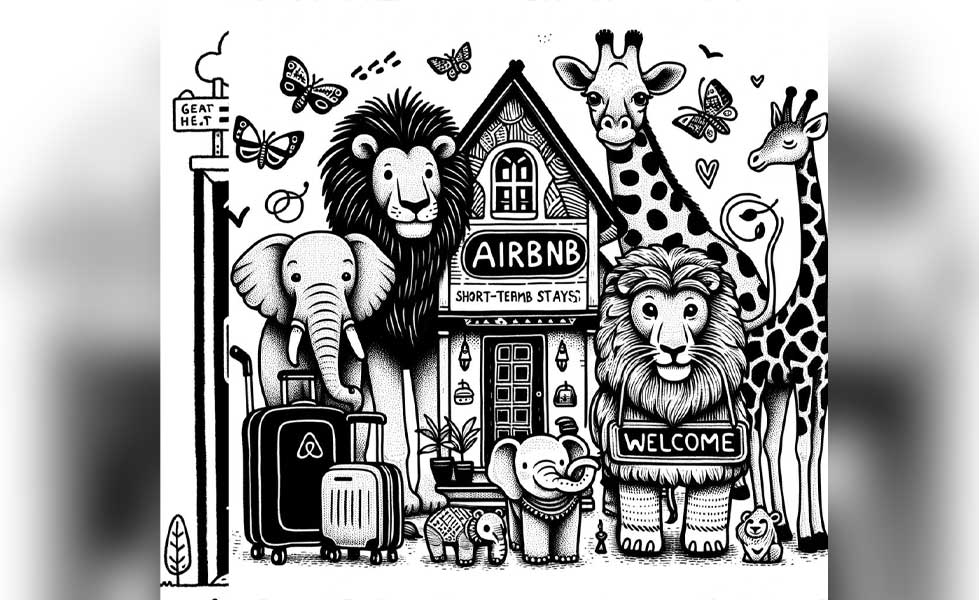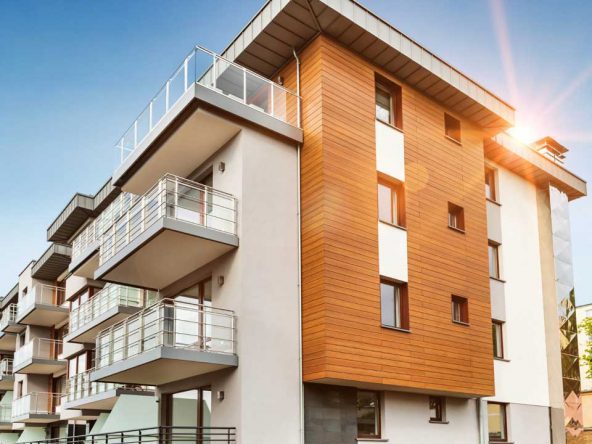Despite being an age-old concept, short-term rentals have grown enormously in recent years. This is majorly attributed to the uptake of online-based platforms such as Airbnb which acts as a digital matching tool in the provision of short-term accommodation services. Short-term rentals refer to dwelling units that are offered to guests on a short-term basis which typically spans over a few days or weeks depending on the arrangement. Examples of short-term rentals include houses, cottages, villas, serviced apartments and homestays which are characterised by individual rooms within the hosts’ homes.
Short rentals are popular for several reasons including:
- Geographical diversity – unlike hotels which are often concentrated in specific tourist hubs, short-term rentals can be found in diverse locations including neighbourhoods, rural areas as well as unconventional settings such as treehouses or houseboats. The diversity of such areas allows guests who double up as tourists to explore a wider range of destinations and experiences beyond typical tourist areas. For instance, both local and international tourists can experience local life in a residential neighbourhood.
- Short-term rentals offer relative flexibility in terms of location. Rather than acquire a large parcel of land to structure your hotel, short-term stays can be set up in any given area at the owner’s convenience. This would include a guesthouse, guestroom, personal home, cabin, apartment, condominium etc.
- Short-term rentals provide property owners with a means of generating additional income from unutilized property. Several homeowners do not fully occupy their respective premises at all times. By renting them out, homeowners can make use of unoccupied spaces while simultaneously generating income for themselves.
- Growing economy of surrounding communities which is a by-product of the whole business venture. During their stay, tourists patronize various small businesses thus contributing to the overall economic growth.
Airbnb
Traditionally, the popularity of short rentals was advanced through word of mouth or home exchanges. However, internet-based platforms such as Airbnb have since fueled the transformation, diversification and expansion of such activities in an unprecedented way. Airbnb allows hosts and guests to connect at a global scale in a manner that is faster, safer and more cost-efficient compared to traditional short-term rentals. Prospective hosts list their spare rooms or entire apartments for a self-established price and offer the lodging to potential guests temporarily.
Differences between Airbnb and Short-term rentals
Despite the correlation between Airbnb and short-term rentals, there exist three major differences. They include:
1. Business structure
Though used interchangeably, Airbnb is an online platform that links hosts to their potential guests. It can therefore be regarded as a service that is being offered as opposed to a tangible asset like a building. On the other hand, short-term rentals refer to the actual premises in which guests reside during their stay.
2. Occupier Liability
When accidents occur, depending on the circumstances of the occurrence, a host may be exposed to the occupier’s liability. Occupier’s liability refers to the duty of care owed by an occupier (Airbnb host) to the visitor occupying their premises and ensuring their safety throughout their entire stay. If an accident is established to have arisen through the negligence of an Airbnb host, then a claim for Occupier’s liability may arise. Nevertheless, this same liability would not be visited upon Airbnb as a platform as it does not directly own and operate the let premises.
Nonetheless, Airbnb has taken steps to ensure the safety of its users through the following measures:
- Authenticate identification of all its users and occupants. They have policies on what they allow and what they do not allow.
- Identity verification for both the hosts and guests of the Airbnb.
- Incorporation of digital payments, no cash options will be available on the platform.
- Availability of a 24-hour safety line.
- Cooperation with law enforcement in the event of a crime occurring.
- Expelling bad actors on the Airbnb platform.
3. Regulation and Legality
Currently, short-term rentals listed in and outside of Airbnb are largely regulated by the Tourism Act of Kenya, 2011. Section 98(5)(c) of the Tourism Act, imposes an obligation on a host/owner of an Airbnb to procure an environmental impact assessment licence (NEMA licence) over the premise. The essence of having a license in place is to:
- Bringing order to the sector: Licensing is a deterrent to would-be unscrupulous businessmen since punitive measures are taken against those who contravene laws.
- Ensuring Customer Satisfaction: Tourist handlers are expected to demonstrate high levels of professionalism and integrity. Further, licensing ensures that only qualified personnel are engaged in the industry.
- Helps Enforce Standards: Overseas suppliers have more confidence in dealing with ground handlers who are not only licensed by the Government but are also members of recognized trade associations. The Associations follow codes of ethics approved by the Authority.
- Compilation of a database and directory: Licensed operators and businesses will comprise a database and directory that would be instrumental for the planning, and marketing of the destination and other decision-making processes.
Aside from a NEMA license, Airbnb hosts are also required to have a regulatory license which is a one-off payment and is required upon registration of an Airbnb with the tourism regulatory authority.
Currently, in Kenya there lacks a dedicated statute for the regulation of entities such as Airbnb.
Disclaimer:
Please note that the information provided in this article is for general informational purposes only and should not be construed as legal advice. It is always advisable to consult with a qualified legal professional to discuss your specific circumstances and obtain tailored legal counsel.





